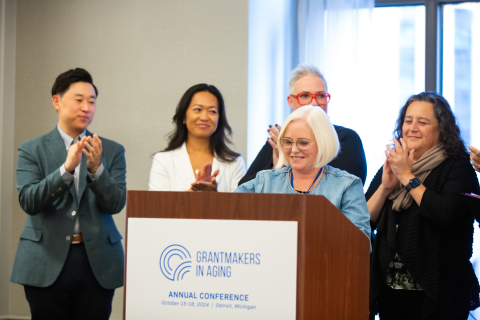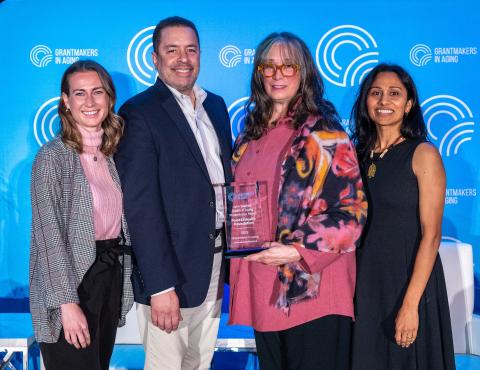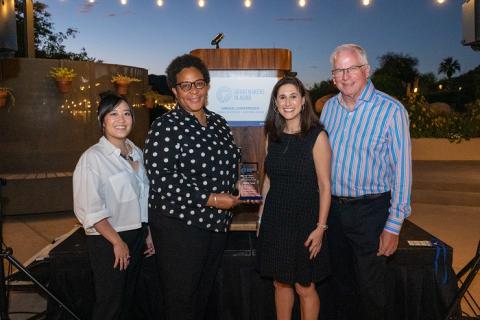The John Feather Equity in Aging Philanthropy Award honors funders who are committed to creating a more equitable philanthropic sector through their operations, programs, investments, and grantmaking. John Feather was a founding Board member of GIA and is the immediate past CEO.
2025 John Feather Equity in Aging Philanthropy Recipient

This year's award honors the Michigan Health Endowment Fund, in partnership with the Detroit Area Agency on Aging, for their commitment to advancing equitable access to healthcare for older adults. With the Fund’s support, the Detroit AAA launched the Home-Based Primary Care Program, delivering medical care directly to homebound older adults and connecting them with essential social supports such as home-delivered meals.

Pictured: GIA Board Chair and Cambia President Peggy Maguire and members of the Task Force on Equity in Aging Philanthropy.
Cambia Health Foundation invests in programs that expand access to behavioral health in underserved communities across Idaho, Oregon, Utah and Washington. In their nomination form, they are described as visionary, an influential convener and collaborator, a foundation that “has the courage” to take risks- particularly when it comes to funding BIPOC-led initiatives and organizations working to improve the lives of people of color of all ages. They’re often the first investor which helps to galvanize support from other funders. The foundation continually seeks feedback from grantees to improve their process and approach to grant making to ensure inclusive decision making and transparent, equitable funding decisions that respond to community needs.
Point32Health Foundation funds equity-focused solutions related to healthy aging, access to healthy food and behavioral health in Connecticut, Maine, Massachusetts, New Hampshire and Rhode Island. In their nomination form, Point32 described how grantees have challenged them to deepen their commitment, center equity in all that they do, and affirm a focus on equity in aging. They also noted that they invest in community-led solutions, “recognizing that those most affected by inequities are in the best position to define the problem, design appropriate solutions and describe success.”

Metta Fund works to advance the health and well-being of older San Franciscans through grantmaking and community partnerships. When asked to describe a specific practice that others within our sector might adopt, Metta Fund responded that they strive to “overtly embed equity into the reason we exist as an institution,” a process they note “requires testing your assumptions—listening to new voices, tolerating discomfort, questioning what you ask of your nonprofit partners and WHY and asking everyone in your organization to see themselves as part of supporting a fundamental shift to operating in a new paradigm.”
